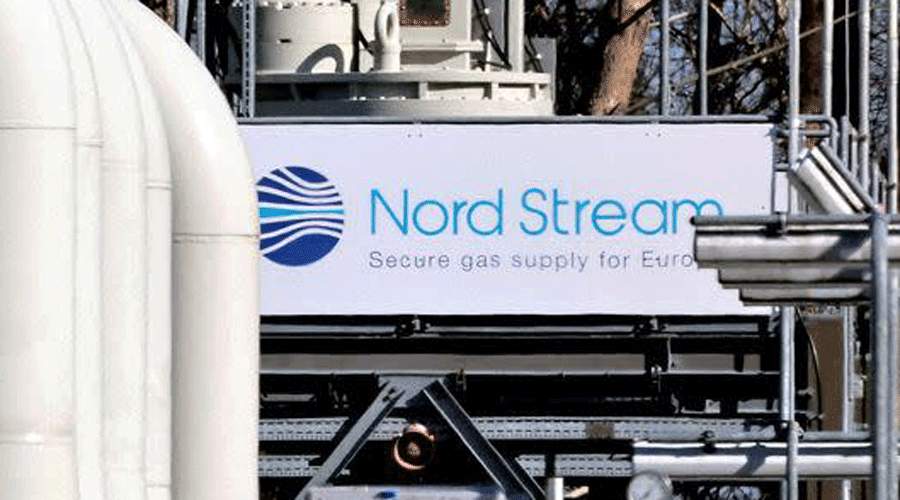The authorities in Germany, Denmark and Sweden are investigating suspicious leaks in two gas pipelines running from Russia to Germany under the Baltic Sea after both experienced a sudden drop in pressure that raised concerns among European leaders on Tuesday about possible sabotage.
Neither of the pipelines, Nord Stream 1 and 2, had been active, but both were filled with natural gas when they experienced a sharp drop in pressure that was first registered on Monday.
Footage released by the Danish Defence command showed a swirling mass of methane bubbling up onto the surface of the Baltic Sea. The authorities said the drop could only be caused by a leak, and officials in Denmark raised their security alerts at electricity and gas facilities around the country.
Mateusz Morawiecki, Poland’s Prime Minister, blamed Russia for the leaks, saying they were an attempt to further destabilise Europe’s energy security. He spoke at the launch of a new undersea pipeline that connects Poland to Norway through Denmark.
“We do not know the details of what happened yet, but we can clearly see that it is an act of sabotage,” Morawiecki said. “An act that probably marks the next stage in the escalation of this situation in Ukraine.”
Denmark’s Prime Minister, Mette Frederiksen, said that sabotage could not be ruled out. “It is too early to conclude yet, but it is an extraordinary situation,” she said during a visit to Poland to inaugurate the pipeline from Norway.
“There is talk of three leaks, and therefore it is difficult to imagine that it could be accidental,” she said.
Mykhailo Podolyak, a senior adviser to President Volodymyr Zelensky of Ukraine, said on Twitter that the leaks were “a terrorist attack planned by Russia and an act of aggression towards EU”.
The Kremlin’s spokesman, Dmitri S. Peskov, said of the leaks that “no possibility can be ruled out”, but the Russian state media sought to blame the US and Ukraine. The state-run RIA Novosti news agency reported that Washington “is an active opponent of Russian gas supplies to Europe”.
It was not immediately clear who would benefit from ruptures in the pipelines, which were not in operation. The leaks were found at different points on two branches of the Nord Stream 1 pipeline and one branch of NordStream 2, Danish officials said.
Russian exodus
The number of Russians entering the EU has jumped following a partial mobilisation ordered by Moscow, and illegal crossings are likely to increase if Russia closes its border for potential conscripts.
New York Times News Service










